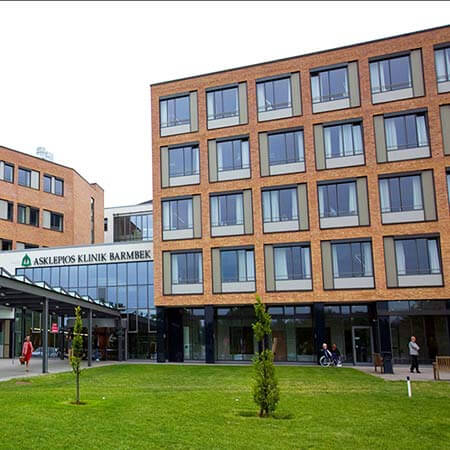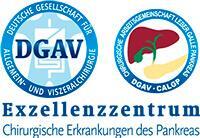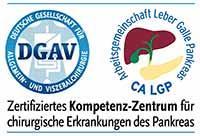Peritoneal Carcinomatosis — CRS and HIPEC - Hyperthermic Intraperitoneal Chemoperfusion: treatment in the Best Hospitals of Germany
Treatment prices are regulated by national law of the corresponding countries, but can also include additional hospital coefficients. In order to receive the individual cost calculation, please send us the request and medical records.

Department of General and Abdominal Surgery, Hepatopancreatobiliary Surgery and Hernia Surgery
The Department of General and Abdominal Surgery, Hepatopancreatobiliary Surgery and Hernia Surgery offers the full range of services in the areas of its specialization. The department's surgical team successfully performs interventions for diseases of the stomach, esophagus, small intestine, large intestine, rectum, pancreas, liver, gallbladder, and bile ducts. Patients with various types of hernias, including inguinal, umbilical, and incisional hernias, are also operated on here. It should be noted that the department also performs cytoreductive surgery with hyperthermic intraperitoneal chemotherapy (HIPEC), which is an advanced treatment method for peritoneal carcinomatosis. The specialists at the medical facility strive to provide patients with not only effective but also as sparing treatment as possible. That is why the use of minimally invasive surgical techniques is a priority. Such an approach to treatment practically eliminates surgical risks and reduces the duration of a hospital stay. The department has the status of an Expert Center for Liver and Pancreatic Surgery as well as a Competence Center for Upper Gastrointestinal Surgery, which is confirmed by the certification from the German Society for General and Visceral Surgery (DGAV). In addition, the medical facility regularly demonstrates high success rates in the surgical treatment of gastrointestinal cancers, which are confirmed by the certification from the German Cancer Society (DKG).







Department of General, Abdominal, Transplant, Hepatopancreatobiliary, Colorectal, Endocrine, Bariatric Surgery and Hernia Surgery
The Department of General, Abdominal, Transplant, Hepatopancreatobiliary, Colorectal, Endocrine, Bariatric Surgery and Hernia Surgery provides the full range of services in the areas of its specialization and holds a leading position at the national and international levels in terms of the number of surgical interventions performed and their success. Of particular interest are operations for treating diseases of the bowel, stomach, esophagus, pancreas, liver, gallbladder, and bile ducts, and endocrine glands. The department's doctors have excellent skills in the surgical treatment of cancer, surgery for liver, kidney, pancreas, and small intestine transplants, and operations for morbid obesity. The department's operating rooms are the pride of the medical facility, since they have all the necessary technical options for performing operations with the da Vinci surgical system, image-guided interventions, and endoscopic surgical procedures, which are characterized by minimal trauma rates.







Department of General and Abdominal Surgery, Hepatopancreatobiliary Surgery, Colorectal Surgery, Endocrine Surgery, Hernia Surgery and Bariatric Surgery
The Department of General and Abdominal Surgery, Hepatopancreatobiliary Surgery, Colorectal Surgery, Endocrine Surgery, Hernia Surgery and Bariatric Surgery offers the full range of effective surgical treatments in accordance with modern medical standards. Operations of varying complexity are performed on the stomach, colon, pancreas, liver, gallbladder, bile ducts, rectum, thyroid gland, and parathyroid glands in the department's operating rooms every day. The department's primary focus is the surgical treatment of malignant gastrointestinal tumors. The medical facility is certified in this area by the German Cancer Society (DKG). The team of endocrine surgeons specializes in the treatment of diseases of the thyroid gland, parathyroid glands, and adrenal glands. Patients with morbid obesity are also successfully operated on here. In their work, the department’s specialists primarily use minimally invasive surgical techniques, which virtually eliminate trauma to healthy tissue during the intervention. The department's operating suite is equipped with an innovative da Vinci Surgical System, which allows the doctors to perform sparing and high-precision surgical interventions. The specialists of the medical facility strictly adhere to hygiene and safety standards and create the most comfortable conditions for each patient during their hospital stays.






Peritoneal carcinomatosis is a severe type of the progression of malignant tumors located in the abdominal and pelvic cavities. For the treatment of this condition, you will need the services of the world's best doctors. The optimal choice in this situation will be cytoreductive surgery followed by hyperthermic intraperitoneal chemotherapy. This treatment method is used at leading cancer centers in Germany. You can find out the cost and make an appointment for your treatment through the Booking Health website.
Content
- Who may be a candidate for peritoneal carcinomatosis treatment using CRS/HIPEC?
- What is the process of peritoneal carcinomatosis treatment?
- Effectiveness of peritoneal carcinomatosis treatment
- Where can I undergo cancer treatment?
Who may be a candidate for peritoneal carcinomatosis treatment using CRS/HIPEC?
Peritoneal carcinomatosis is the spread of a malignant tumor through the membrane lining inside the abdominal cavity, covering the internal organs. It is considered a natural consequence of cancer progression.
According to autopsies of patients who died from abdominal cancer, peritoneal carcinomatosis is found in 80% of cases. At the time of diagnosis for various types of cancer, this pattern of tumor spread is detected in 5-70% of patients. Peritoneal carcinomatosis most often develops in patients with appendiceal cancer, colon cancer, stomach cancer, and ovarian cancer. The condition may also occur in patients with tumors of the peritoneum, small intestine, pancreas, gallbladder, and other oncologic diseases.
The prognosis for patients with peritoneal carcinomatosis is unfavorable. This is a severe form of cancer that responds poorly to systemic treatment methods. However, doctors in countries with advanced healthcare systems have found a solution to this problem. Cytoreductive surgery (CRS) combined with hyperthermic intraperitoneal chemotherapy (HIPEC) is used at leading cancer centers. The essence of this treatment method involves the surgical removal of visible tumor foci, followed by rinsing the abdominal cavity with a heated solution of cytostatics. This procedure destroys the remaining clusters of cancer cells that the doctor cannot see during surgery.
The PCI index is used to assess the severity of peritoneal carcinomatosis. For some cancers, treatment with CRS and HIPEC is performed with a PCI as high as 16-19, while for more aggressive neoplasms, these procedures are performed with a PCI score as low as 7. Candidates for this surgery must also be in good general condition to tolerate the complex surgery. At the start of treatment, there should be no distant metastases outside the abdominal cavity.
What is the process of peritoneal carcinomatosis treatment?
CRS/HIPEC treatment is done in a single stage.
When performing surgery, doctors remove all visible tumor foci in the abdominal cavity. The extent of this surgery varies greatly from patient to patient. Doctors have to totally or partially remove several organs, soft tissues, lymph nodes, affected areas of the peritoneum, etc. Reconstruction may also be required to restore the function of the damaged organs and systems. Therefore, such operations last 4-6 hours on average, and in some patients, their duration may reach 12 hours or more.
At the final stage, the abdominal cavity is rinsed with a heated solution of cytostatics for 30-90 minutes. The concentration of drugs is 10-20 times higher than what is achieved in the bloodstream during conventional chemotherapy. Heating additionally enhances cytotoxic properties, allowing the solution to penetrate to a depth of up to 3 mm. As a result, the HIPEC procedure quickly destroys the remaining cancer cells.
Effectiveness of peritoneal carcinomatosis treatment
The effectiveness of treatment depends on the type of tumor and the extent of cytoreduction. Doctors at the leading German cancer centers manage to perform complete cytoreduction in 90% of cases. The best survival rates are achieved in patients with colon cancer, ovarian cancer, and appendiceal cancer.
The CRS/HIPEC method has been used worldwide since the 1990s, and vast experience has already been gained in its application. Its effectiveness has been proven by numerous studies. As an example, let us consider a study published by Yu Yang et al. in 2021.
The authors presented the results of the treatment of 1,384 patients with peritoneal carcinomatosis. Among them, 11.8% had stomach cancer, 20.7% were diagnosed with colorectal cancer, 25.7% had pseudomyxoma peritonei, 6.5% had peritoneal mesothelioma, 21.7% of the cases were gynecologic cancers, mainly ovarian cancer, and the remaining 13.5% were patients with tumors that rarely cause peritoneal carcinomatosis (including lung cancer, breast cancer, soft tissue sarcomas, etc.).
Interestingly, in this study, the mean carcinomatosis index (PCI) was quite high, averaging 21 points and reaching a maximum of 39 points. This was probably the main reason why physicians managed to achieve complete (CC-0) or optimal (CC-1) cytoreduction in only 62% of cases. Despite relatively poor surgical outcomes, survival rates after hyperthermic intraperitoneal chemotherapy were favorable, considering the advanced stage of cancer. Patient survival rates were the following:
- One-year survival rates: 73.5%
- Three-year survival rates: 50.4%
- Five-year survival rates: 39.3%
Due to the high-quality process of patient selection, treatment with CRS/HIPEC has proven to be relatively safe. Complications occurred in 24% of cases, and the mortality rate was only 1.5%.
Where can I undergo cancer treatment?
You can undergo cancer treatment in Germany. This is a country with top-class healthcare. Hospitals in this country provide high-quality medical services, and the CRS/HIPEC procedure has been used here for more than 30 years.
Experience plays a crucial role in achieving good results. Cytoreductive surgery is a very complex and risky procedure. To become proficient in performing them with high patient survival rates and a low risk of complications, a surgeon typically needs to perform up to 200 such procedures, which he can perform in 5-10 years. The best results are achieved in cancer centers that perform at least 55 such surgical interventions every year.
You can find out prices, choose a hospital, and make an appointment for your treatment in Germany through the Booking Health website. The best German hospitals are presented here. You can sort them by rating or cost, choosing a cancer center with reasonable prices for medical services.
By making your treatment appointment through Booking Health, you can receive treatment at a lower price. Your expenses will be lower due to the lack of additional coefficients for foreign patients. The Booking Health specialists will help you choose a hospital in Germany that has great experience performing cytoreductive surgery with intraperitoneal hyperthermic chemotherapy.
Authors:
The article was edited by medical experts, board certified doctors Dr. Nadezhda Ivanisova and Dr. Vadim Zhiliuk. For the treatment of the conditions referred to in the article, you must consult a doctor; the information in the article is not intended for self-medication!
Sources:

